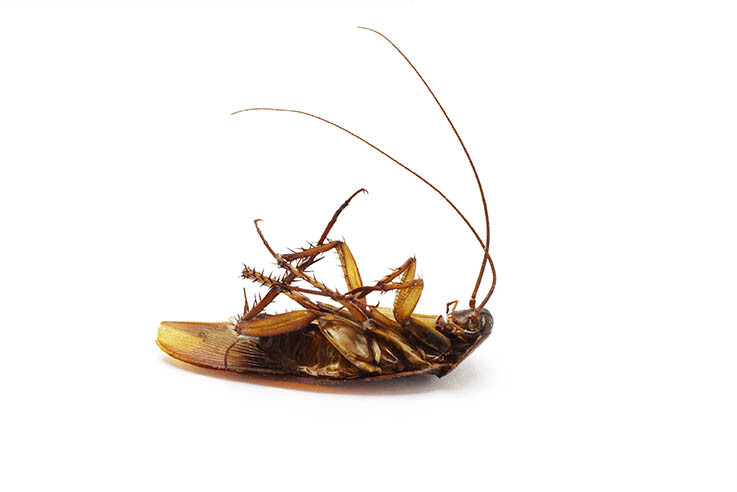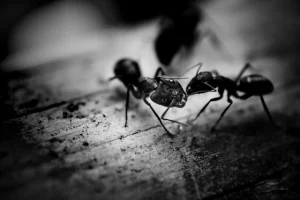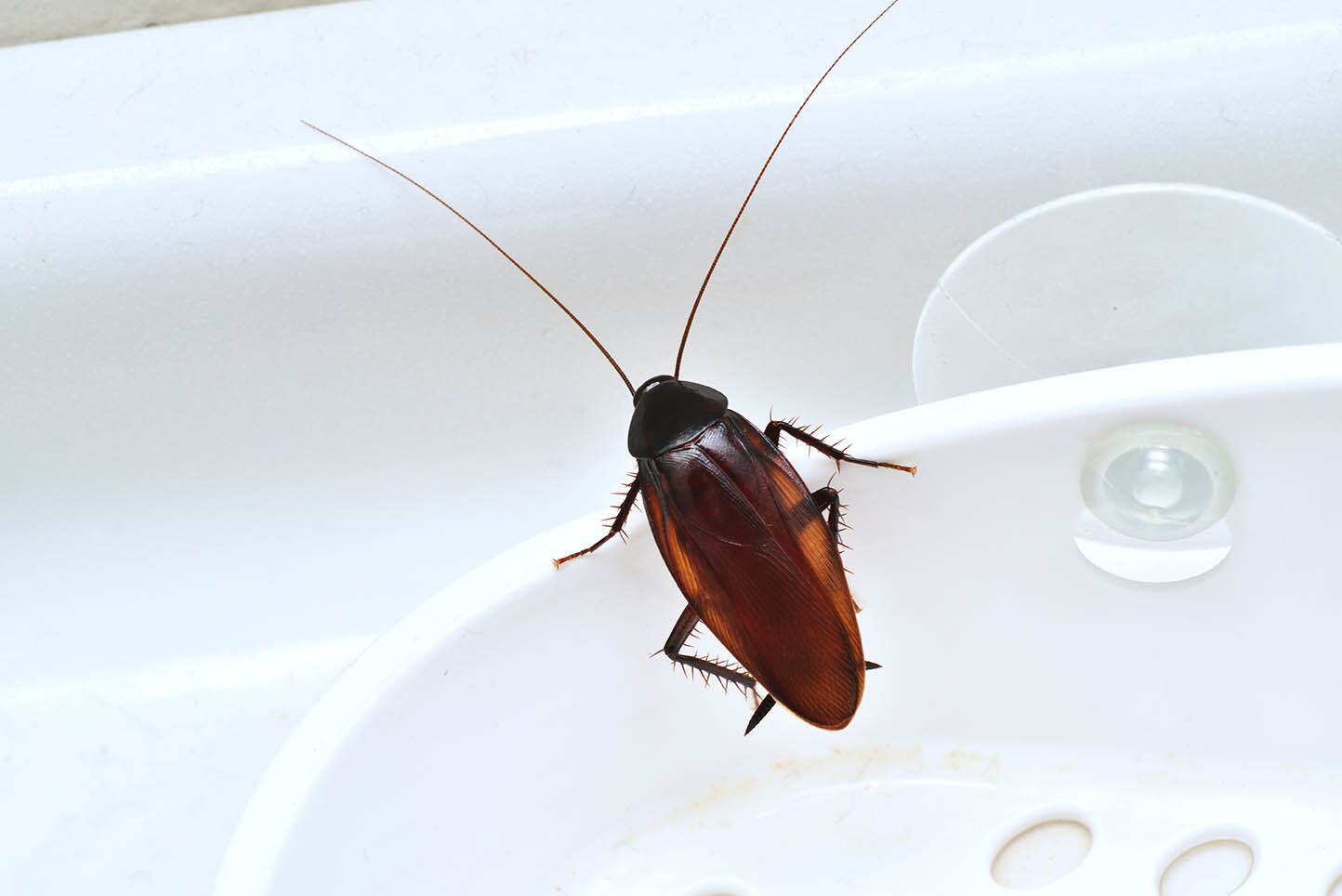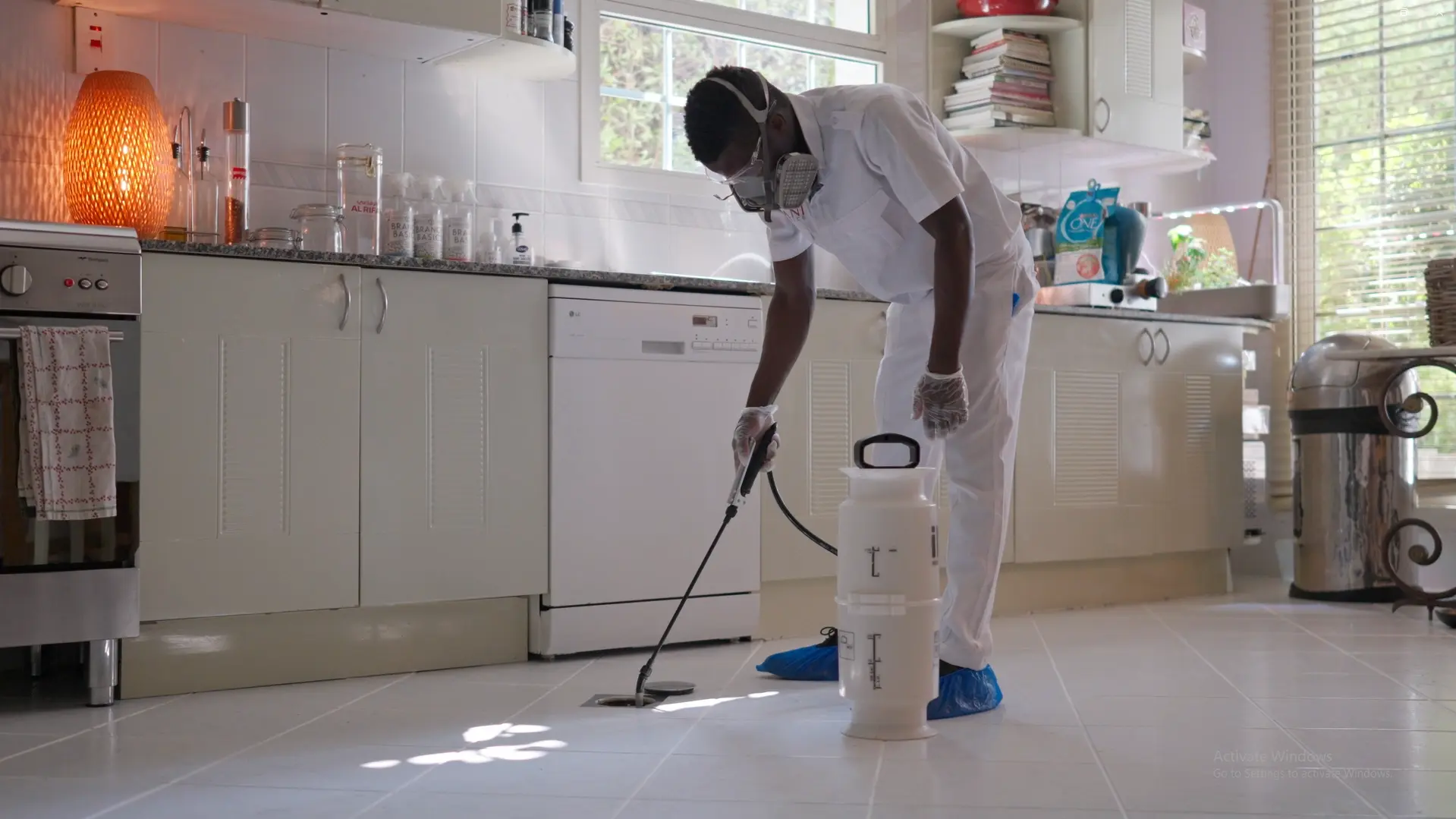Cockroach Allergy
Myung Hyun Sohn, Kyu-Earn Kim*
Introduction

Cockroaches, often found in buildings and other man-made structures, are highly adaptable insects that can survive in various environments. These nocturnal creatures prefer dark and humid conditions, which makes them difficult to spot during the day. However, exposure to cockroaches can lead to year-round allergies and asthma for some susceptible individuals. In this article, we will explore the causes, symptoms, diagnostic methods, and prevention strategies for cockroach allergies.
Cockroach allergies occur when proteins found in cockroaches act as allergens, provoking an allergic immune response in sensitive individuals. These allergens can be present in cockroach body parts, saliva, and feces, and even dead cockroaches can trigger allergic reactions. Symptoms of cockroach allergy include sneezing, runny nose, itchy or watery eyes, stuffy nose, itchy nose or throat, postnasal drip (mucus flowing from the nose into the throat), cough, and itchy skin or skin rash. In cases where a cockroach allergy leads to asthma, additional symptoms may include difficulty breathing, chest tightness or pain, whistling or wheezing sounds during exhalation, and sleep disturbances due to shortness of breath, coughing, or wheezing.
To diagnose a cockroach allergy, healthcare professionals typically perform a physical examination and discuss the patient’s symptoms in detail. Common diagnostic tests used to confirm a cockroach allergy include skin prick tests and specific IgE blood tests. In a skin prick test, small quantities of cockroach allergens are applied to the skin using tiny pricks, and a reaction such as redness or swelling indicates an allergic response. The specific IgE blood test measures the presence of specific antibodies in the blood produced in response to cockroach allergens.
Prevention is essential in managing cockroach allergies. By adopting strategies such as keeping trash cans securely covered, storing food in airtight containers, cleaning dirty dishes promptly, sweeping up food crumbs and wiping spills immediately, vacuuming and mopping floors routinely, not leaving pet food in open bowls, repairing leaky pipes, sealing cracks in walls and floors, and considering regular pest control interventions by professional service providers, individuals can minimize the risk of exposure to cockroach allergens.
Read the full study here:
The-Cockroach-and-Allergic-Diseases-Understanding Cockroach Allergy
Cockroach allergy occurs when proteins found in cockroaches act as allergens, provoking an allergic immune response in sensitive individuals. These allergens can be present in cockroach body parts, saliva, and feces. It is essential to note that even dead cockroaches can trigger allergic reactions, emphasizing the importance of addressing their presence.
Common Symptoms of Cockroach Allergy
If you are allergic to cockroaches, you may experience the following symptoms:
- Sneezing
- Runny nose
- Itchy, red, or watery eyes
- Stuffy nose
- Itchy nose, mouth, or throat
- Postnasal drip (mucus flowing from the nose into the throat)
- Cough
- Itchy skin or skin rash
In cases where a cockroach allergy leads to asthma, additional symptoms may include:
- Difficulty breathing
- Chest tightness or pain
- Whistling or wheezing sounds during exhalation
- Sleep disturbances due to shortness of breath, coughing, or wheezing
Diagnosing Cockroach Allergy
If you suspect that you have a cockroach allergy, it is crucial to consult a healthcare professional for an accurate diagnosis. The doctor will perform a physical examination and discuss your symptoms in-depth. Common diagnostic tests used to confirm a cockroach allergy are:
- Skin prick test: Small quantities of cockroach allergens are applied to the skin using tiny pricks. A reaction, such as redness or swelling, indicates an allergic response.
- Specific IgE blood test: This test measures the presence of specific antibodies in your blood that are produced in response to cockroach allergens.
Prevention Strategies to Avoid Cockroach Exposure
Prevention is essential in managing cockroach allergies. By adopting the following strategies, you can minimize the risk of exposure to these allergens:
- Ensure all trash cans are securely covered.
- Store food in airtight containers, including items in cabinets and on countertops.
- Clean dirty dishes promptly and avoid leaving them in the sink or on the counter.
- Regularly sweep up food crumbs from countertops, stovetops, tables, and floors. Wipe up spills immediately.
- Vacuum and mop floors routinely to remove cockroach debris.
- Do not leave pet food in open bowls and clean the bowls regularly.
- Repair any leaky pipes, as cockroaches are drawn to damp areas.
- Seal cracks in walls and floors to prevent cockroaches from entering your home.
- Consider regular pest control interventions by a professional and accredited service provider.
Conclusion
Cockroach allergies can cause considerable discomfort and, in some cases, provoke asthma attacks. By recognizing the symptoms, obtaining an accurate diagnosis, and implementing preventive measures, individuals can effectively manage their cockroach allergies. It’s crucial to consult a healthcare professional for personalized advice and guidance on managing symptoms and reducing exposure to cockroach allergens. With the right approach and commitment to prevention, you can successfully minimize the impact of cockroach allergies on your life.
References:
Allergy Asthma Immunol Res. 2012 September;4(5):264-269.
http://dx.doi.org/10.4168/aair.2012.4.5.264
pISSN 2092-7355 • eISSN 2092-7363












